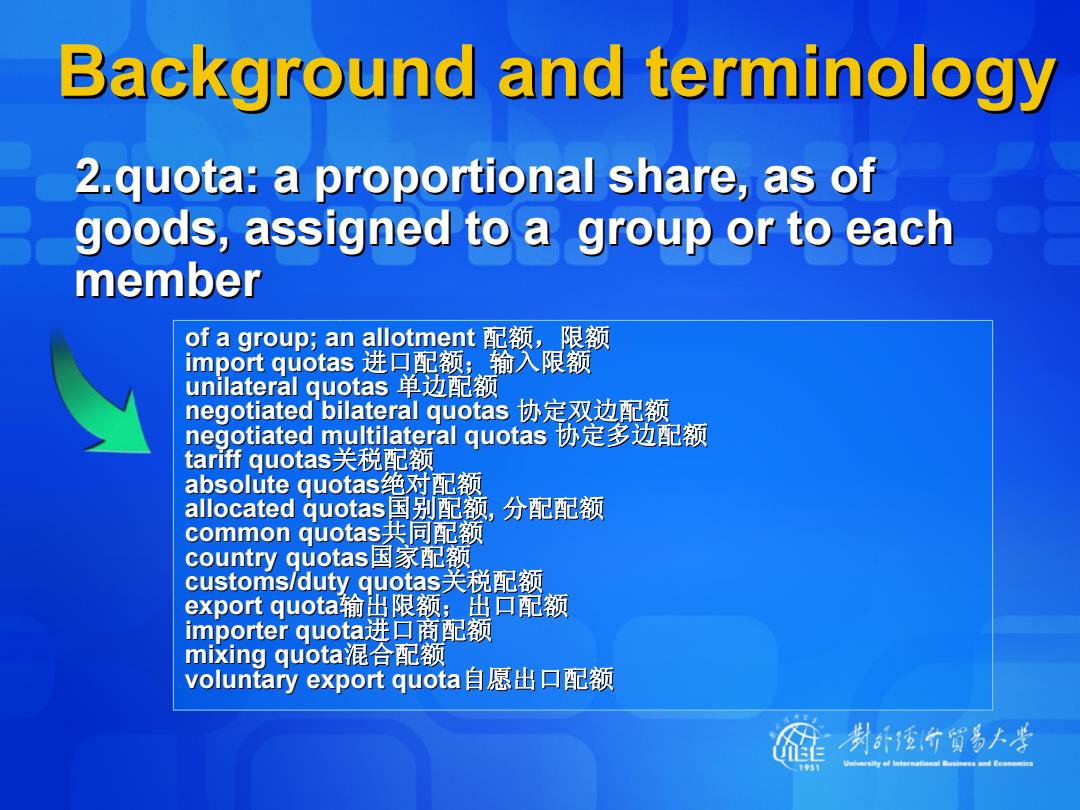
Background and terminology 2.quota:a proportional share,as of goods,assigned to a group or to each member of a group;an allotment配额,限额 import quotas进口配额;.输入限额 unilateral quotas单边配额 negotiated bilateral quotas协定双边配额 negotiated multilateral quotas协定多边配额 tariff quotas:关税配额 absolute quotas:绝对配额 allocated quotas国别配额,分配配额 common quotas共同配额 country quotas国家配额 customs/.duty.quotas关税配额 export quota输出限额;出可配额 importer quota进口商配额 mixing quota混合配额 voluntary export quota自愿出口配额 刿价爱所質易大考
Background and terminology Background and terminology 2.quota: a proportional share, as of 2.quota: a proportional share, as of goods, assigned to a group or to each goods, assigned to a group or to each member of a group; an allotment of a group; an allotment 配额,限额 import quotas import quotas 进口配额;输入限额 unilateral quotas unilateral quotas 单边配额 negotiated bilateral quotas negotiated bilateral quotas 协定双边配额 negotiated multilateral quotas negotiated multilateral quotas 协定多边配额 tariff quotas tariff quotas关税配额 absolute quotas absolute quotas绝对配额 allocated quotas allocated quotas国别配额, 分配配额 common quotas common quotas共同配额 country quotas country quotas国家配额 customs/duty quotas customs/duty quotas关税配额 export quota export quota输出限额;出口配额 importer quota importer quota进口商配额 mixing quota mixing quota混合配额 voluntary export quota voluntary export quota自愿出口配额
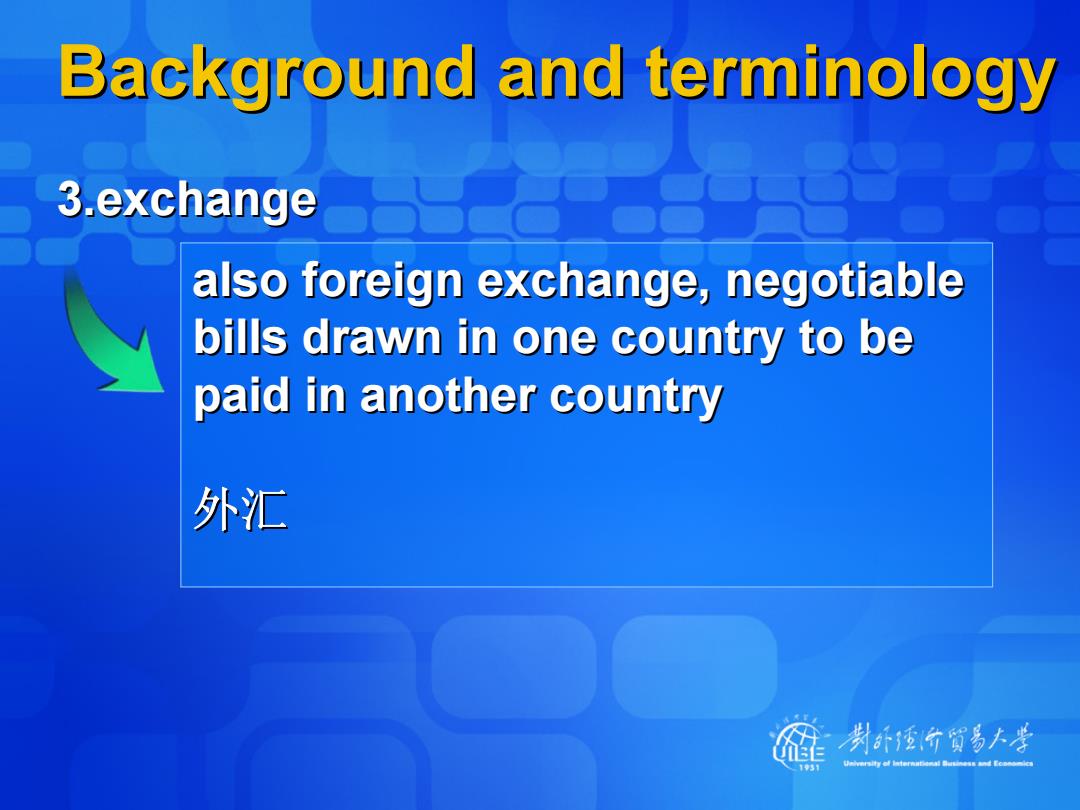
Background and terminology 3.exchange also foreign exchange,negotiable bills drawn in one country to be paid in another country 外汇 制价爱行蜀易大考 15
Background and terminology Background and terminology 3.exchange 3.exchange also foreign exchange, negotiable also foreign exchange, negotiable bills drawn in one country to be bills drawn in one country to be paid in another country paid in another country 外汇
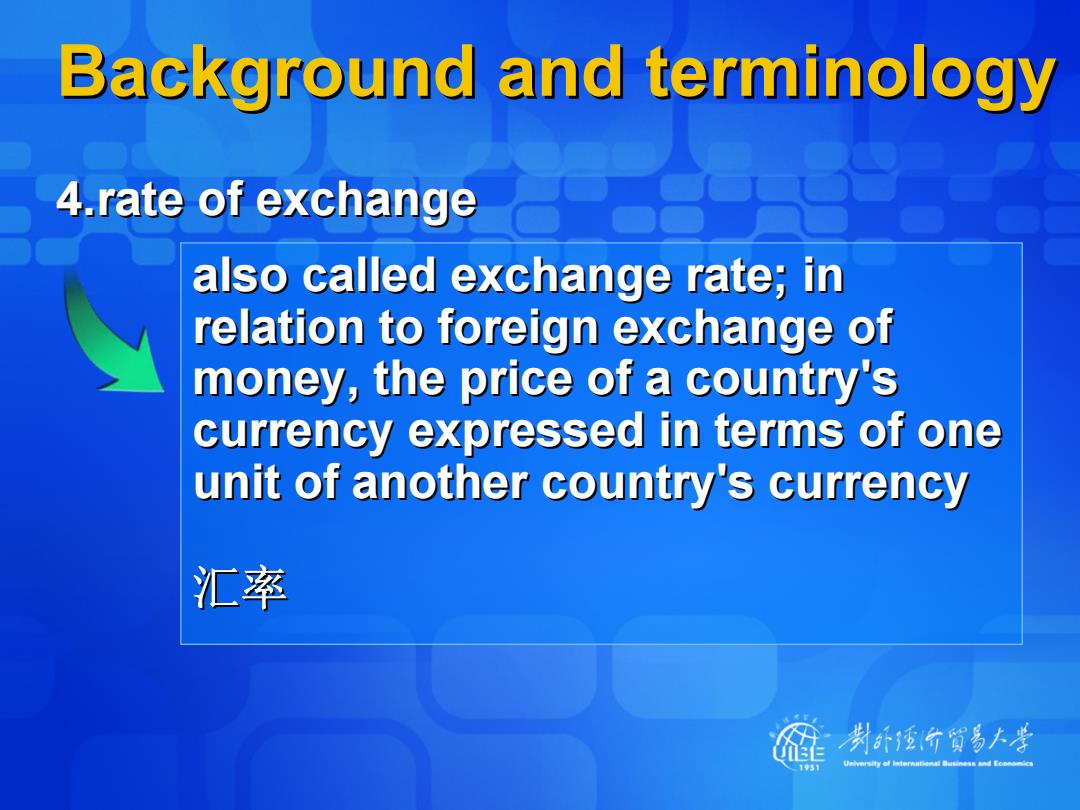
Background and terminology 4.rate of exchange also called exchange rate;in relation to foreign exchange of money,the price of a country's currency expressed in terms of one unit of another country's currency 汇率 制价爱行蜀易大考 15
Background and terminology Background and terminology 4.rate of exchange 4.rate of exchange also called exchange rate; in also called exchange rate; in relation to foreign exchange of relation to foreign exchange of money, the price of a country's money, the price of a country's currency expressed in terms of one currency expressed in terms of one unit of another country's currency unit of another country's currency 汇率
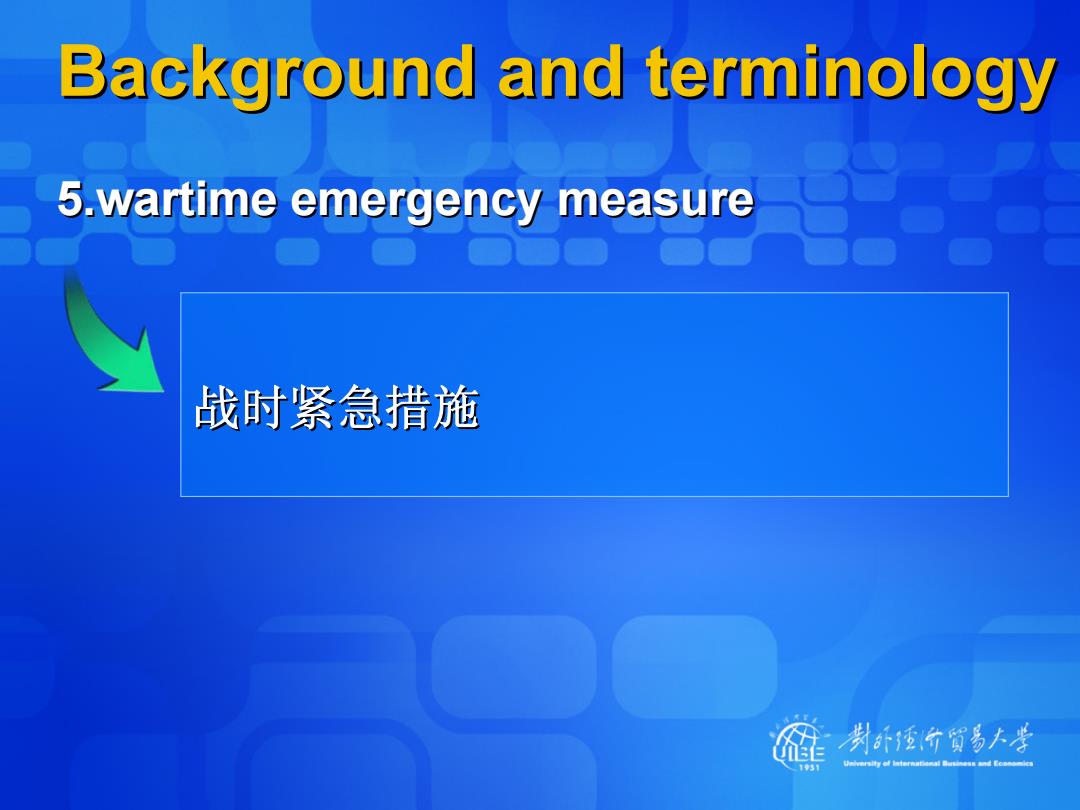
Background and terminology 5.wartime emergency measure 战时紧急措施 制价爱行蜀易大考
Background and terminology Background and terminology 5.wartime emergency measure 5.wartime emergency measure 战时紧急措施
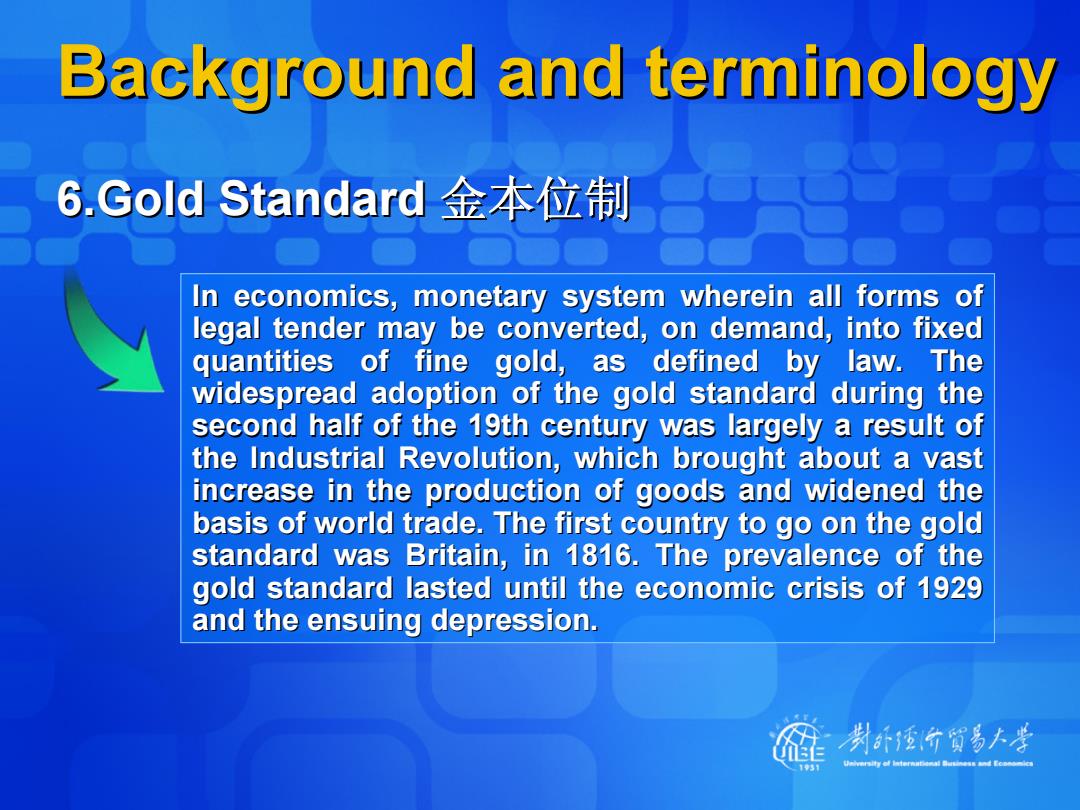
Background and terminology 6.Gold Standard金本位制 In economics,monetary system wherein all forms of legal tender may be converted,on demand,into fixed quantities of fine gold,as defined by law.The widespread adoption of the gold standard during the second half of the 19th century was largely a result of the Industrial Revolution,which brought about a vast increase in the production of goods and widened the basis of world trade.The first country to go on the gold standard was Britain,in 1816.The prevalence of the gold standard lasted until the economic crisis of 1929 and the ensuing depression. 制价爱行蜀易大考
Background and terminology Background and terminology 6.Gold Standard 6.Gold Standard 金本位制 In economics, monetary system wherein all forms In economics, monetary system wherein all forms of legal tender may be converted, on demand, in legal tender may be converted, on demand, into fixed quantities of fine gold, as defined by law. The quantities of fine gold, as defined by law. The widespread adoption of the gold standa widespread adoption of the gold standard during rd during the second half of the 19th century second half of the 19th century was largely a result of was largely a result of the Industrial Revolution, which brought about the Industrial Revolution, which brought about a vast increase in the production of goods and increase in the production of goods and widened the widened the basis of world trade. The firs basis of world trade. The first country to go on the gold t country to go on the gold standard was Britain, in rd was Britain, in 1816. The prevalence of the 1816. The prevalence of the gold standard lasted gold standard lasted until the economic crisis of 1929 the economic crisis of 1929 and the ensuing depression. and the ensuing depression